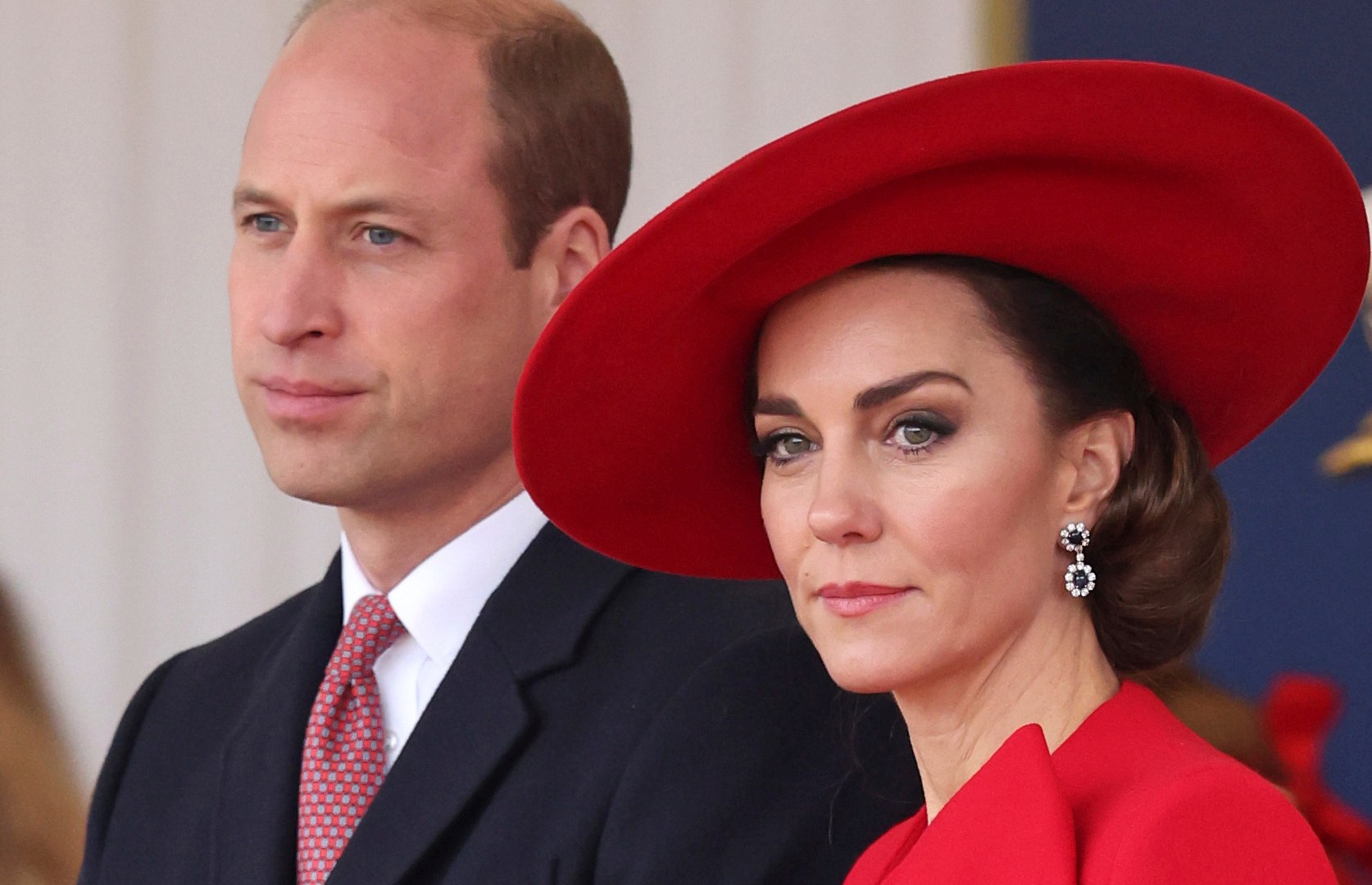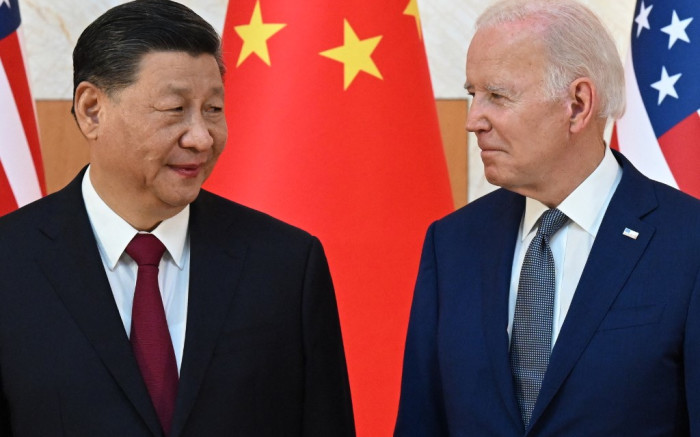
Executives of the most important emerging countries called called on Tuesday for an end to Israel’s war on Gaza and a cessation of hostilities on both sides to ease the rapidly worsening humanitarian crisis in the Gaza Strip.
At a virtual summit chaired by South African President Cyril Ramaphosa, the BRICS group condemned attacks on civilians in Palestine and Israel. Many leaders described the forced displacement of Palestinians inside or outside the Gaza Strip as a “war crime.”
“We have condemned any form of individual or mass forcible expulsion and deportation of Palestinians from their own land,” a leader said in a summary. The group, which did not issue a joint statement, also reiterated that the forced transfer and deportation of Palestinians, whether within the Gaza Strip or to neighboring countries, constitute serious violations of the Geneva Conventions, as well as war crimes and violations of international humanitarian law.
The BRICS consists of Brazil, Russia, India, China and South Africa, all large emerging economies seeking a greater say in a global order long dominated by the United States and its Western allies. These countries are often seen as the leaders of what is known in international politics as the “Global South.”
But these five countries weren’t the only ones talking about the war on Tuesday. The BRICS countries did so earlier this year agreed to an expansion and adding Egypt, Ethiopia, Argentina, Saudi Arabia, the United Arab Emirates and Iran as members from 2024. The leaders of these six countries also attended the meeting convened by South Africa. UN Secretary-General Antonio Guterres also took part in the summit.
The chair summary – essentially an overview of the mood in the room – highlights the growing calls from the global south to end the war in Gaza. The conflict began after an attack by the armed group Hamas on Israeli communities on October 7, killing 1,200 people and taking 240 others hostage. In response, Israel has relentlessly bombed Gaza, targeting hospitals, schools and refugee camps and killing more than 13,000 people, including many children, in violation of international law.
Since then, millions of people across Africa, Asia and the Middle East have marched for a “free Palestine” and called for a ceasefire. Experts in Africa and elsewhere have accused the United States, the United Kingdom and the European Union of hypocrisy for claiming to be bastions of democracy and human rights while supporting Israel’s war in Gaza.
A “growing assertiveness”
While the chairman’s summary appeared “mild and reasonably balanced,” according to Steven Gruzd, an analyst at the South African Institute of International Affairs (SAIIA), some countries were more combative in their presentations.
In his opening speech at the meeting, the current BRICS leader, South African President Ramaphosa, said that Israel’s actions “constitute a clear violation of international law” and that Israel’s “collective punishment of Palestinian civilians is a war crime … tantamount to genocide.” Ramaphosa also said Hamas had “violated international law and must be held accountable.”
India’s stance was comparatively softer: Foreign Minister Subrahmanyam Jaishankar said there was a “need for restraint and immediate humanitarian assistance” as well as “peaceful resolution through dialogue and diplomacy”.
Many of the member states, including Russia and Brazil, have previously criticized Israel’s incessant bombardment and now its ground invasion of the Gaza Strip. China, for its part, this week hosted a delegation from Muslim countriesOfficials and organizations seeking a ceasefire, including the Palestinian Authority (PA).
However, India was not so vocal and actually did it cracked down at pro-Palestine marches at home and seemingly on the side of Israel and its biggest benefactor, the US, in what is seen as a split within the BRICS itself.
But that division did not appear to be evident at Tuesday’s summit, which experts said was the first meeting of its kind for a group that had previously focused on economic issues.
“I’m not sure I remember a similar extraordinary summit being convened,” Gruzd told Al Jazeera. “It reflects the growing assertiveness and confidence of the BRICS grouping, which is not waiting for the West. BRICS has generally shied away from political and security issues; This meeting bucks that trend.”
Together, the BRICS countries represent 40 percent of the world’s population and a quarter of the global economy.
President Ebrahim Raisi of Iran – Israel’s archenemy – said the Palestinians should do it hold a referendum to determine their fate.
Nevertheless, many BRICS countries – not just India – have established relationships with Israel that they do not want to break.
Gruzd notes that China is making huge investments in Israel, while India has even deeper historical ties with the country and has military and technological partnerships with it. But with a fiery Iran set to join the group, India may not be able to influence the new BRICS+ states’ response to Israel, Gruzd said.
South Africa, currently the smallest BRICS country and one that itself experienced more than four decades of repressive apartheid rule, sees its own struggle reflected in that of the Palestinians and has consistently been one of the loudest calls for a ceasefire, analysts said.
At the same time, it has long been Israel’s largest trading partner in Africa. On Tuesday, that relationship seemed to have reached a turning point.
MPs voted to close the Israeli embassy in Pretoria, marking a turning point in the crisis. Diplomats from the country had already been recalled from Israel on November 6th. In response to growing hostility in Pretoria, Israel recalled its ambassador to South Africa, Eliav Belotserkovsky, for “consultations” on Monday.
In addition to Bangladesh, Bolivia, the Comoros and Djibouti, South Africa also submitted a request to the International Criminal Court (ICC) last week to investigate whether war crimes were committed in Gaza.
A turning point?
On Monday, South African Presidential Minister Khumbudzo Ntshavheni applied further pressure and called for an ICC arrest warrant against Israeli Prime Minister Benjamin Netanyahu. He added that it would be a “complete failure” if the court did not investigate the leader.
At the beginning of the year, South Africa succeeded convince Russia will not send President Vladimir Putin to the annual BRICS summit in August because an ICC arrest warrant has been issued against him for war crimes committed in Ukraine. If Putin had attended the summit in South Africa, the country that signed the ICC would have been obliged to arrest him.
The BRICS stance on Tuesday, initiated by South Africa, could prompt more countries to loudly denounce the war, said Muhammed Desai of Africa4Palestine, an advocacy group.
“South Africa is a major economic and political force on the African continent and a country with one of the most embassies and highest commissions in the world,” Desai said. “Therefore, his attitude and position certainly has an influence on the diplomatic arena.”
But the coalition’s political weight is not great enough to have a real impact on the direction of Israel’s war, others say. “Honestly, I don’t think they have much direct influence on Israel,” SAIIA’s Gruzd said. “I also don’t think it will have much of an impact on the West, other than amplifying the voices calling for a ceasefire.”
However, their influence is growing. Dozens of nations have applied or expressed interest in joining the BRICS, a key reason for the expansion earlier this year as the countries seek to reduce their dependence on the U.S.-led Western financial system.
Russia, which will chair the group in 2024, is expected to push for international trade payments to use local currencies instead of the dominant US dollar.
Some say this platform is necessary for the voice of the Global South to be heard. “Within the global world order, BRICS provide another voice,” said Africa4Palestine’s Desai, and “this is necessary to counter the current hegemonic view of the West.”






Recent Comments